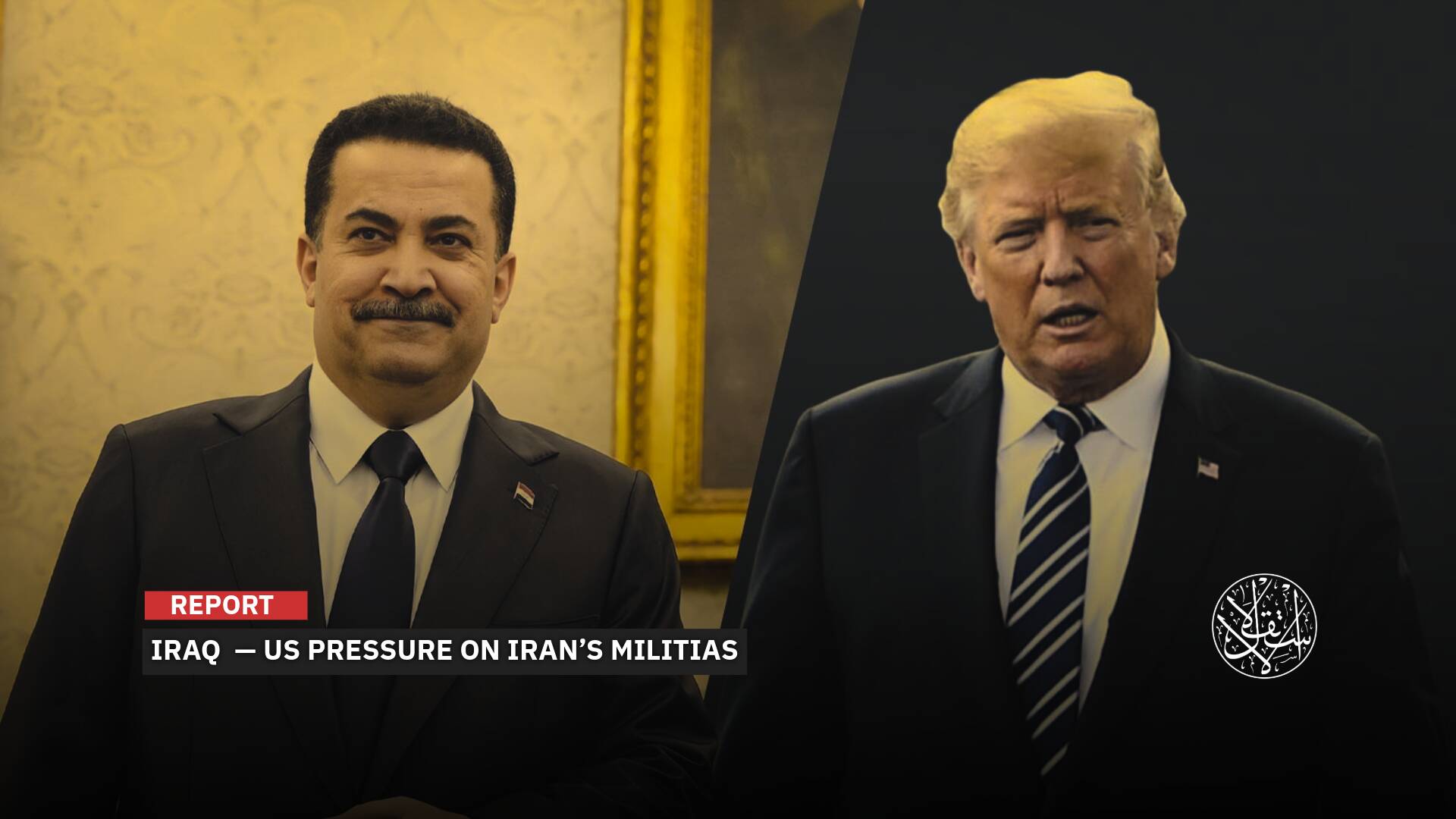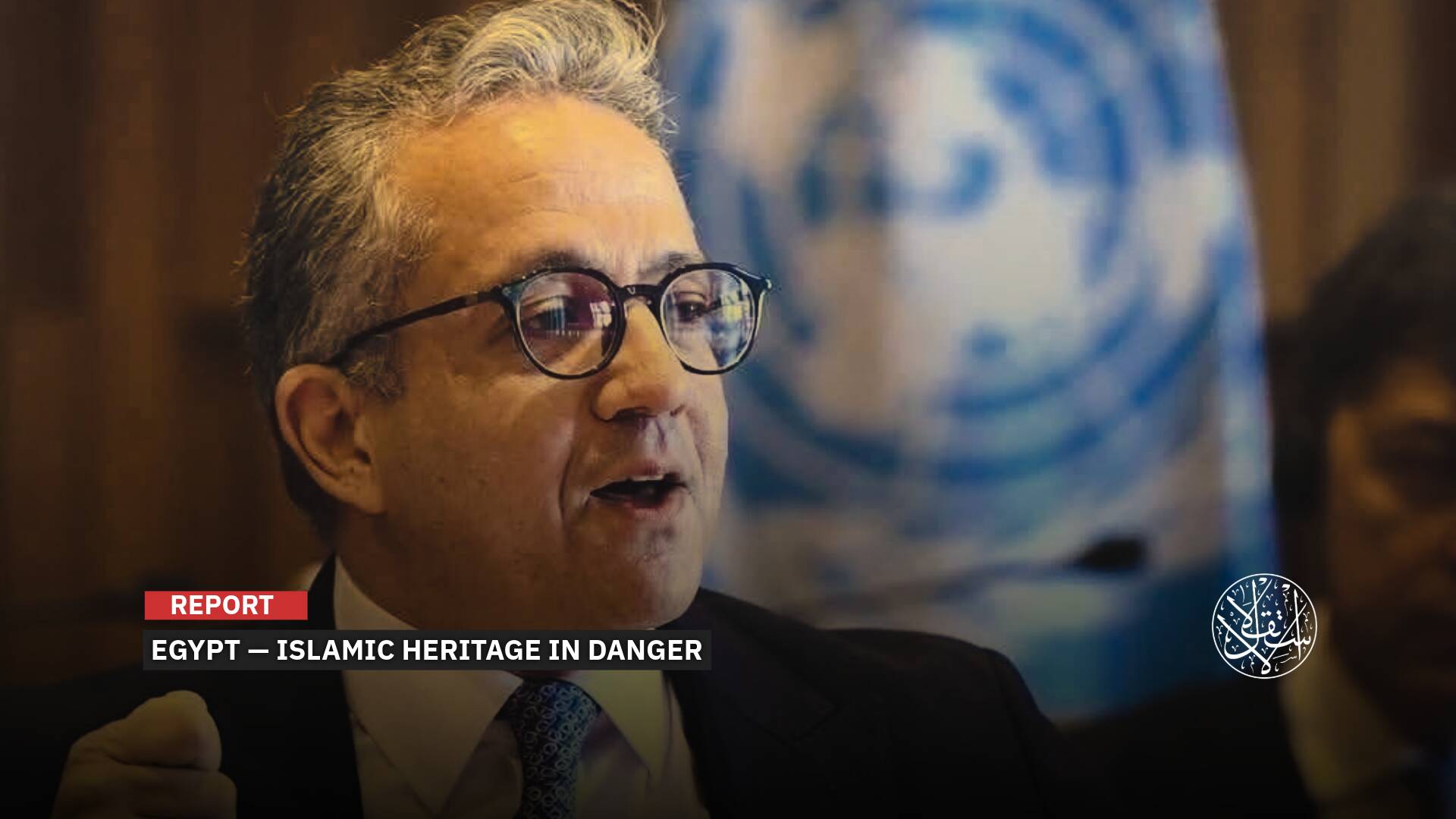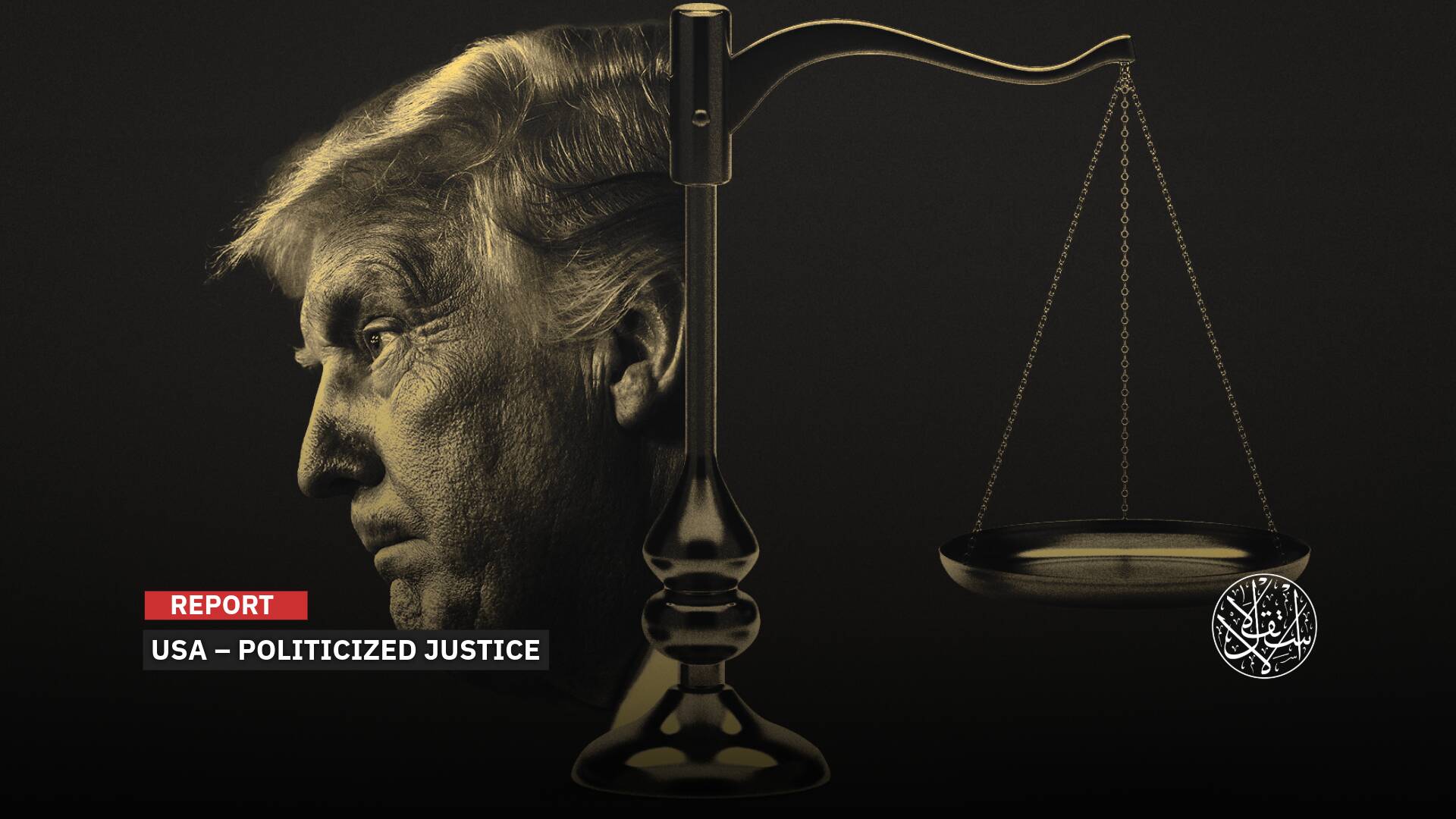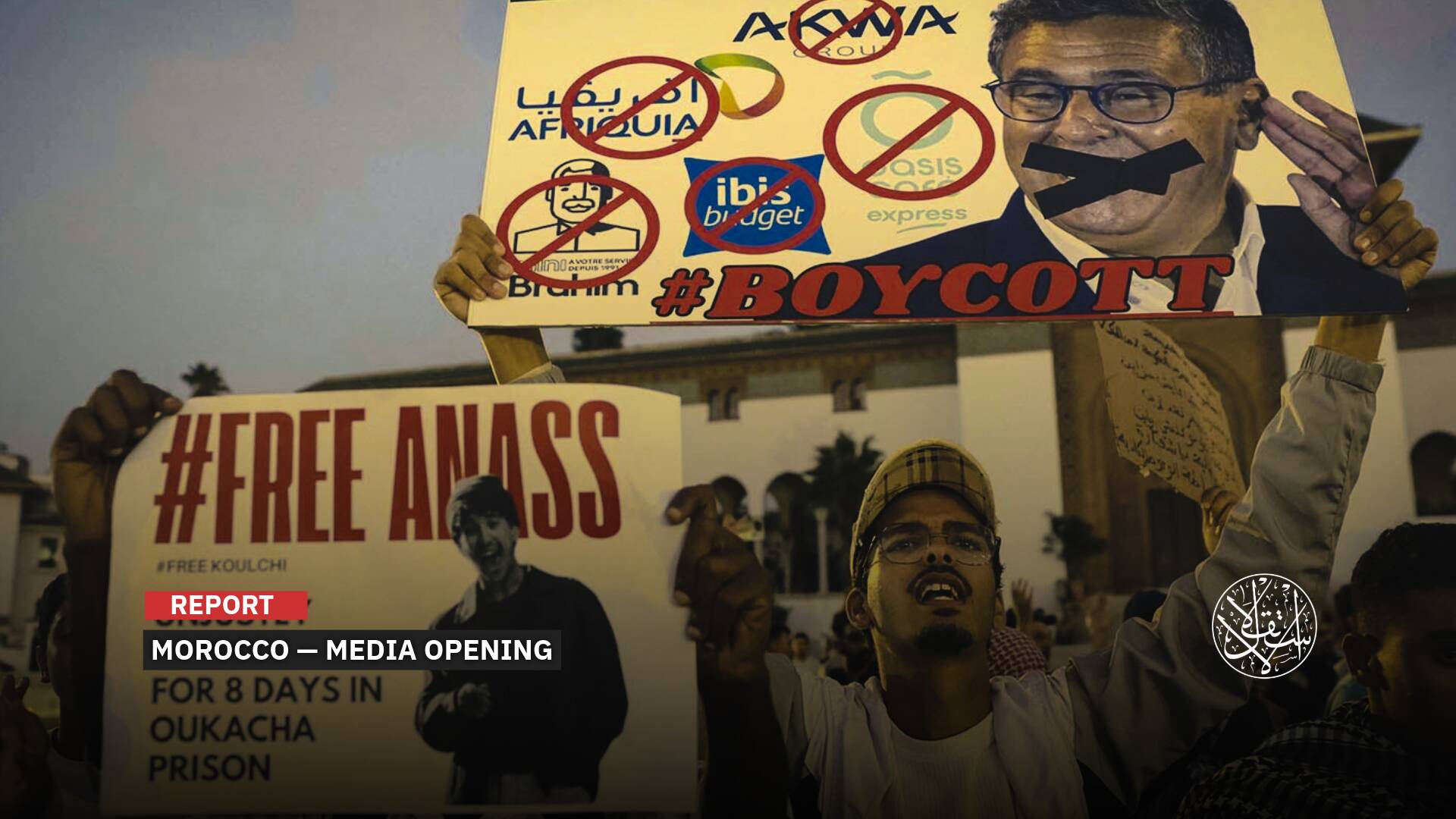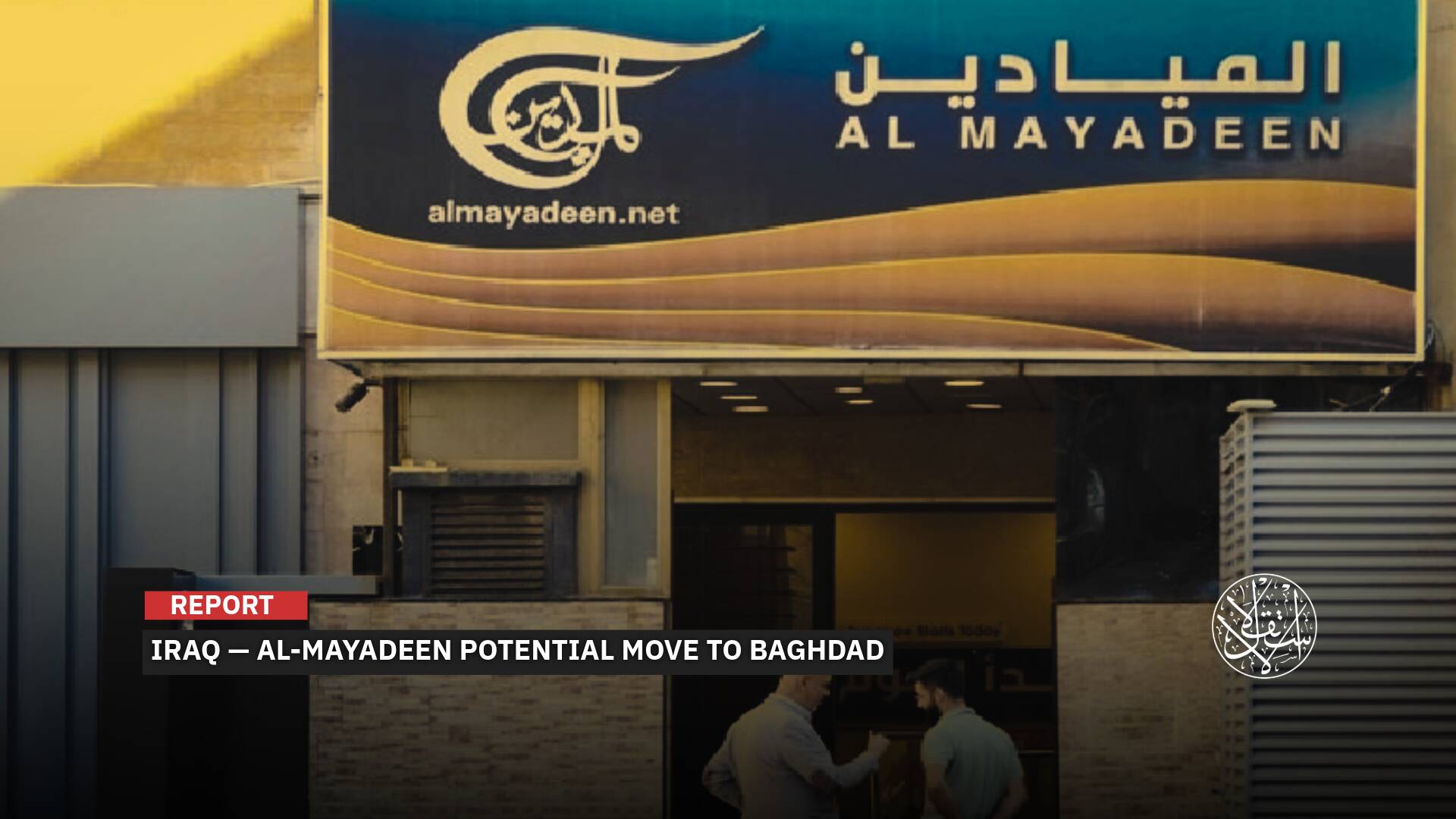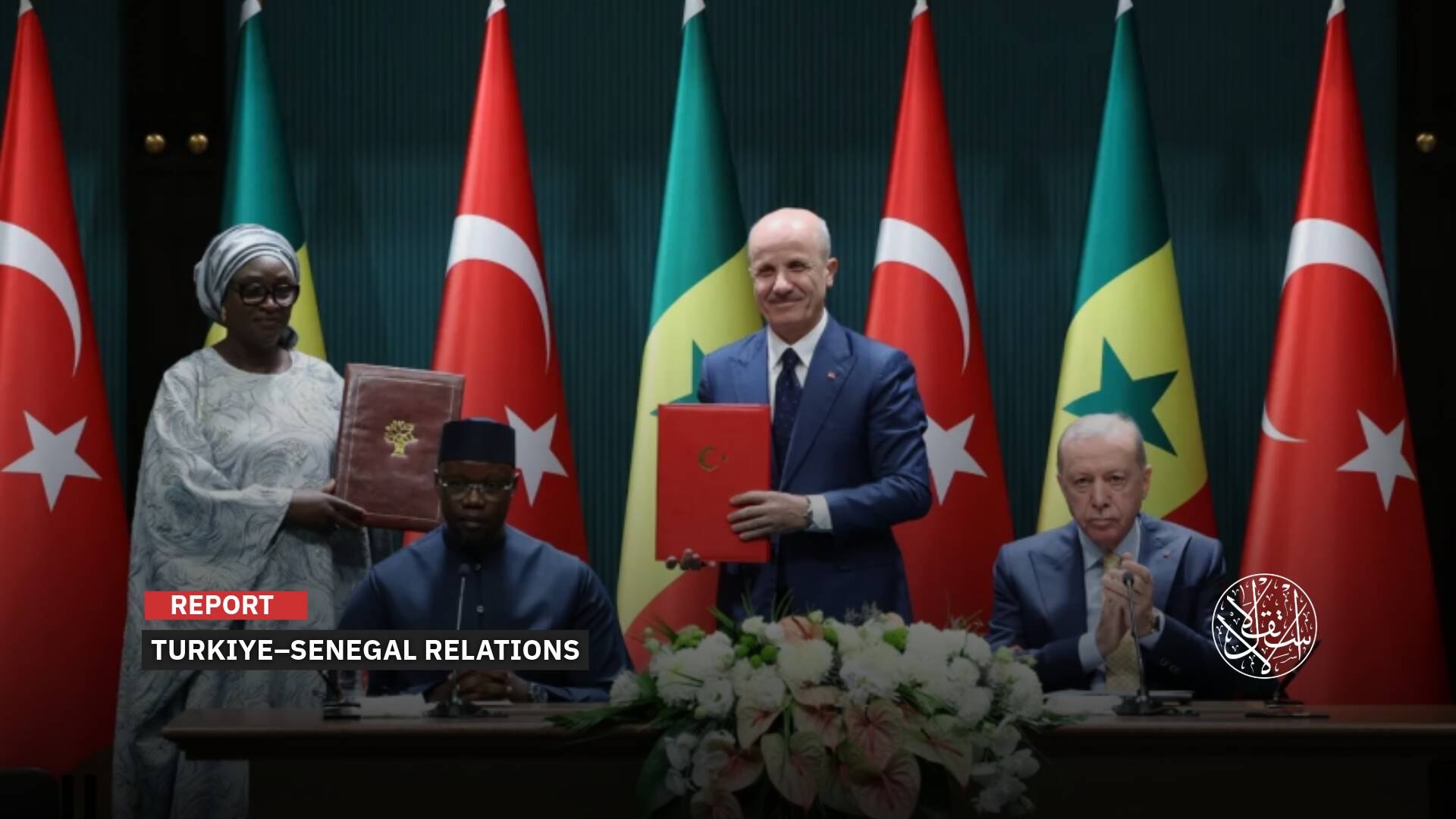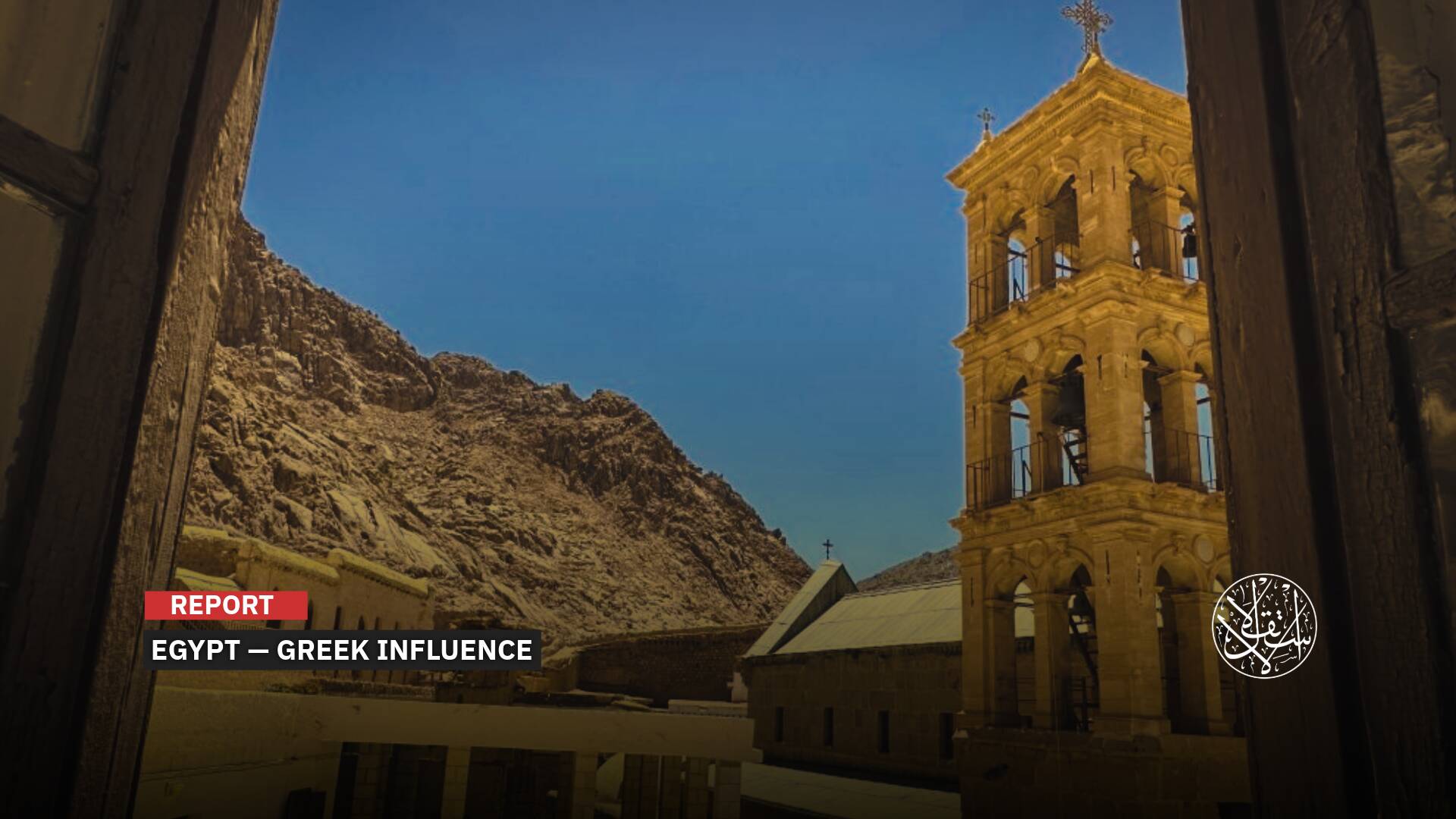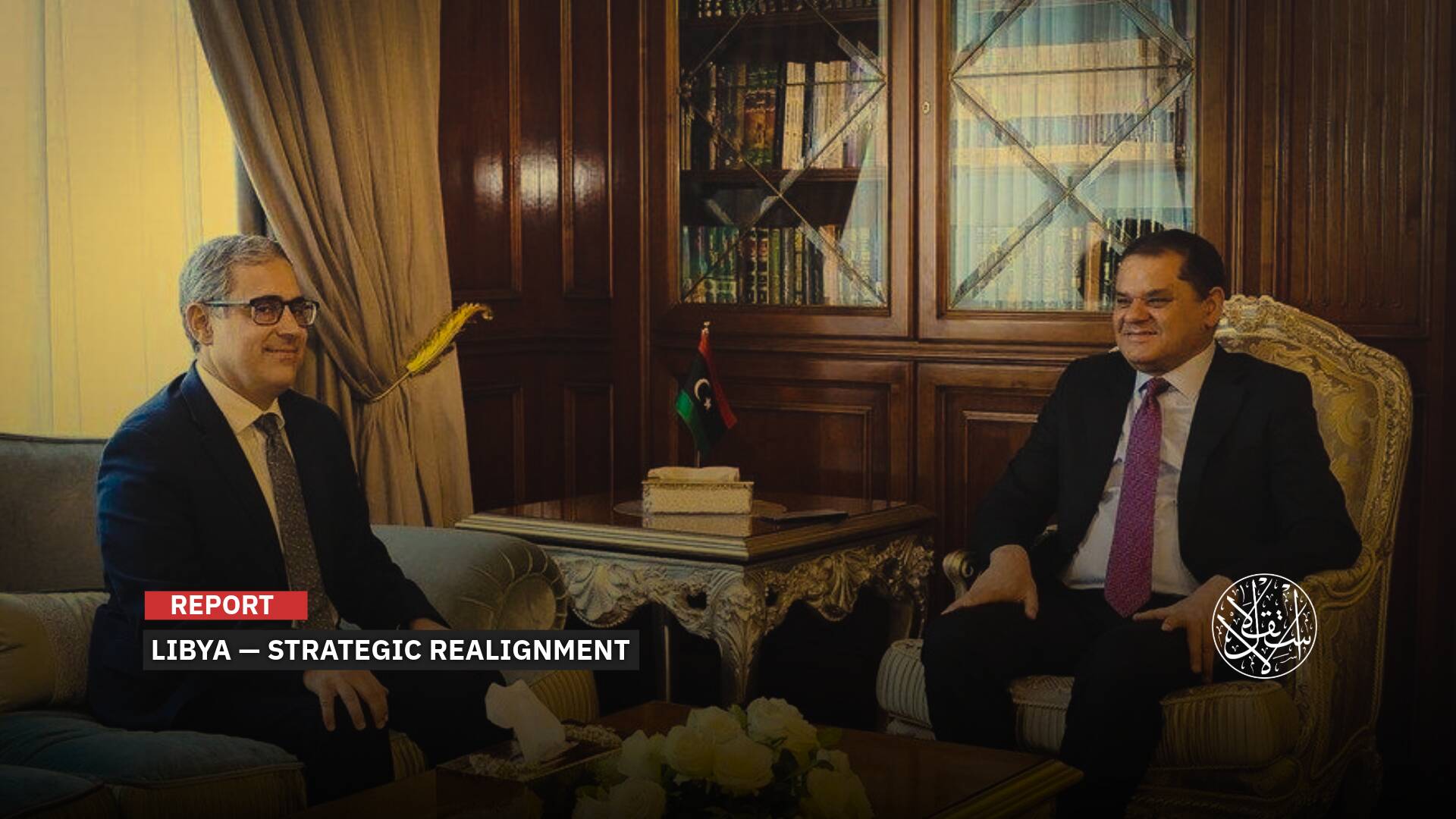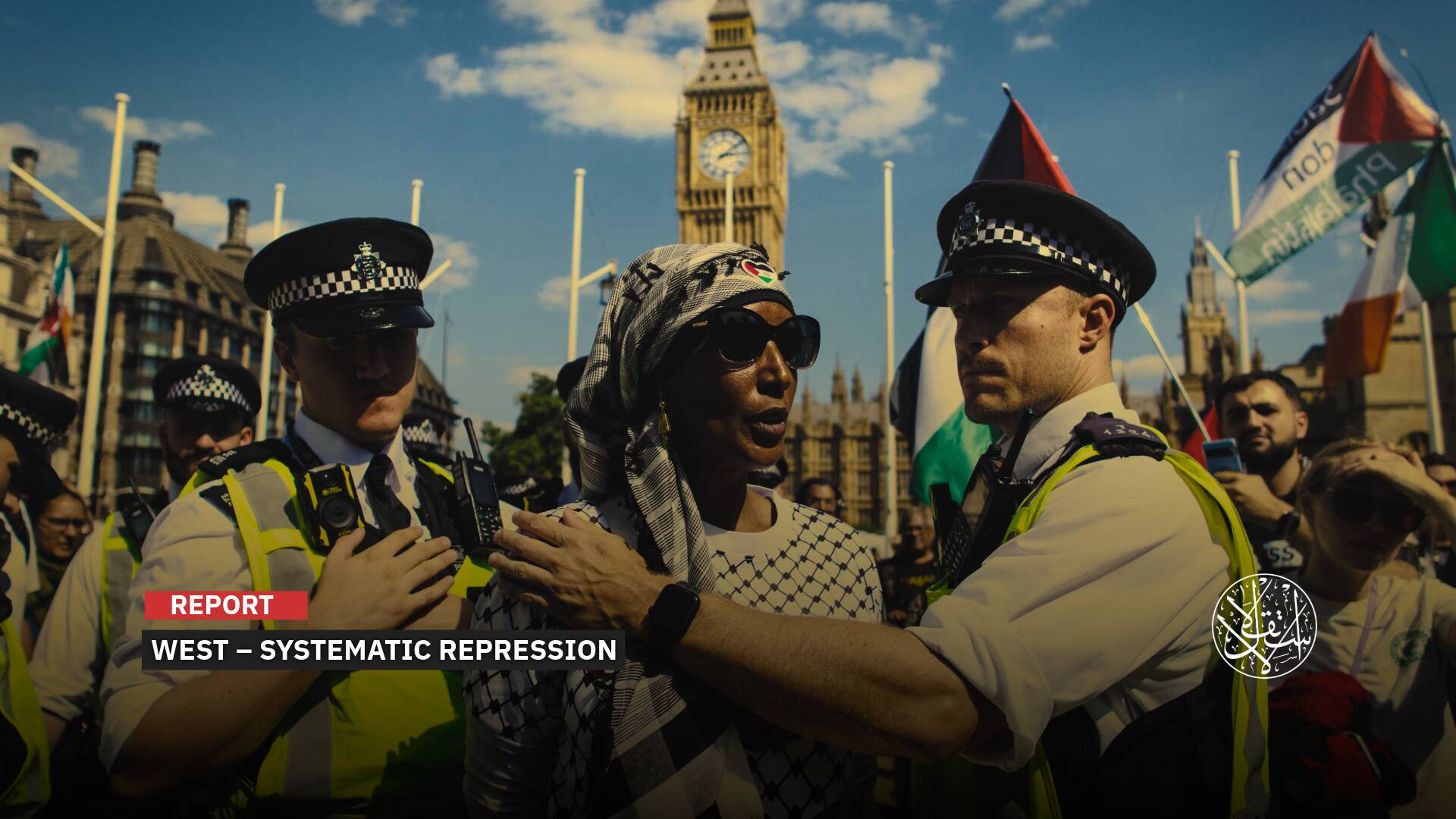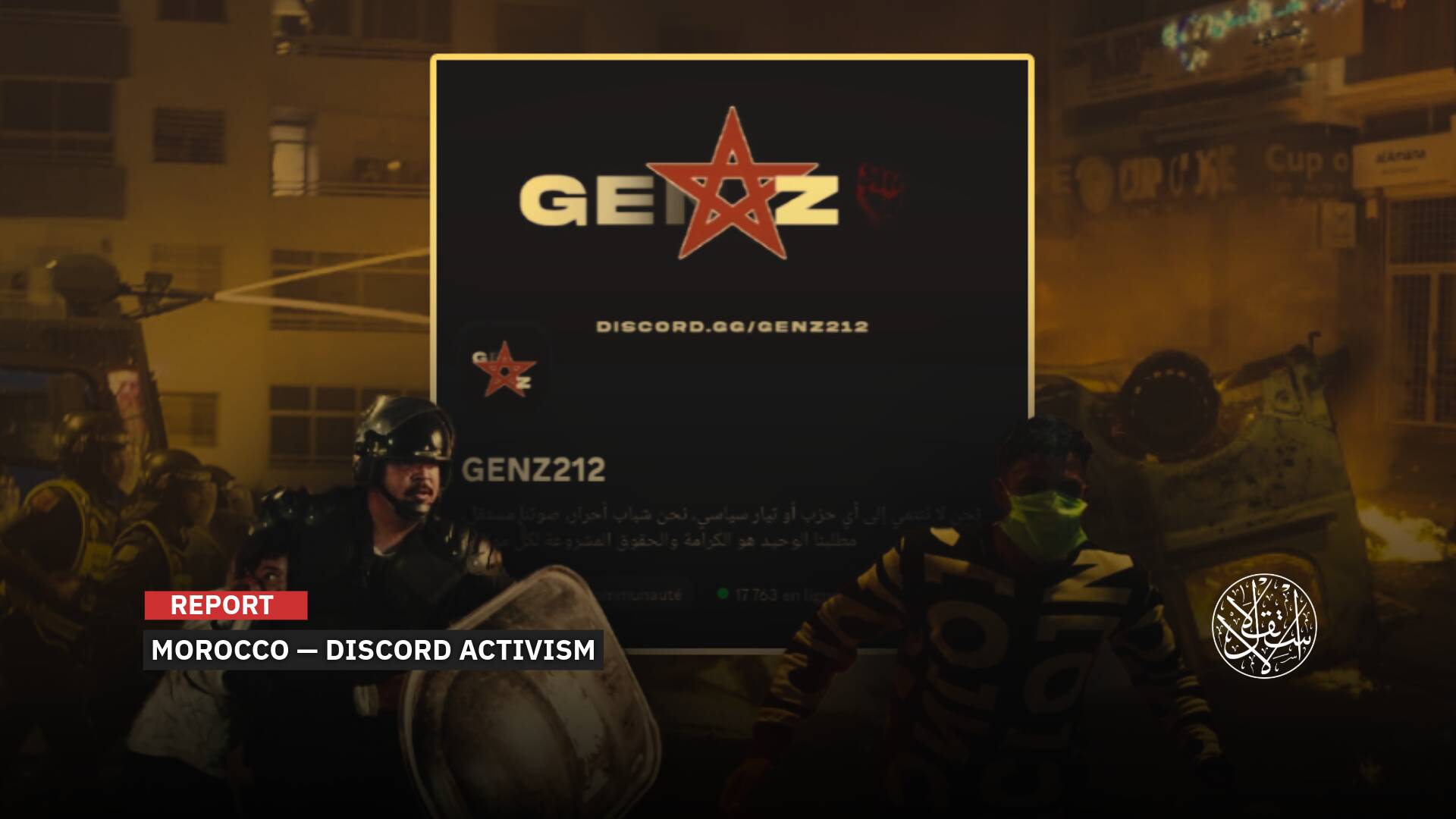Israeli Occupation of Southern Syria: A Move to Block Another South Lebanon or Carve Out a Druze State?

Israeli Occupation’s claim of a threat to the Druze reveals what the Zionists have in store for Syria.
Israeli Occupation’s attacks on Syria, including incursions into Quneitra, have gone hand in hand with Prime Minister Benjamin Netanyahu’s calls for “complete demilitarization” of southern Syria and War Minister Israel Katz’s insistence that the area must not become “another South Lebanon.”
As part of this strategy, “Israel” has barred Syria’s new government from deploying forces south of its capital, laying the groundwork for an indefinite military presence in the region.
But another dimension of this policy suggests that “Israel” is actively pursuing a long-held Zionist vision: carving out a separate Druze enclave as a buffer zone, aligning with historic plans to divide Syria into five fragmented cantons to serve Israeli Occupation’s strategic interests.
Israeli Occupation’s Plan
Following the collapse of Assad’s rule and the rise of a transitional government, “Israel” aims to exploit Syria’s weakened state, its fractured sectarian landscape, and its economic and political crises to secure territorial and strategic gains.
The plan began with systematically crippling Syria’s core military assets—destroying aircraft, tanks, warships, and missile stockpiles—to ensure the new government remains militarily weak and unable to challenge Israeli dominance, a level of control it never fully trusted even under the ousted Bashar al-Assad.
“Israel” has gone beyond dismantling Syrian military assets by seizing the buffer zone established in 1974, arguing that Assad’s forces had fled, leaving the area “unguarded.” Justifying its move as a security measure against potential threats from Hamas or other groups, “Israel” occupied the territory, exploiting fears surrounding Syria’s new leadership.
Recognizing that a stable Syrian government with a rebuilt army could pose a future threat, the Israeli Occupation escalated its expansion beyond the buffer zone into southern Syria. It then advanced a new phase of its strategy—demanding the full demilitarization of the south, ensuring a permanent presence, blocking Syrian forces from returning, and constructing nine military bases to solidify Netanyahu’s long-term occupation.
“We will not allow forces from the HTS organization or the new Syrian army to enter the area south of Damascus,” Netanyahu said on February 23, 2025, referring to the Hayat Tahrir al-Sham group, which spearheaded the operation that toppled the longstanding dictator of Syria, Bashar al-Assad, last December.
He also warned that “Israel” would not accept any threats to the Druze community in Syria, who live in the Golan Heights, a Syrian territory illegally occupied by “Israel,” and other parts of southwestern Syria.
War Minister Israel Katz echoed these statements, emphasizing the Israeli Occupation’s distrust of Syria’s new president, Ahmed al-Sharaa.
“[Al-Sharaa] has risen to power, replaced the jilbab with formal attire, and speaks eloquently. We do not trust him. We only trust the Israeli army,” he said.
Katz confirmed that when Syrian forces attempted to establish military positions, “Israel” responded with airstrikes and said it won’t allow any violation of the demilitarization of southern Syria, framing such violations as part of a “broader defense” strategy covering Syria, Lebanon, and Gaza.
Under the pretext of securing its borders, “Israel” is entrenching its presence in occupied territories across Syria, Lebanon, and Gaza while intensifying security measures along its borders with Egypt and Jordan—despite existing peace treaties.
The Israeli Occupation’s plan consists of three layers: fortified military zones within “Israel,” advanced defense systems inside “enemy territory,” and the enforcement of demilitarized zones—allowing “Israel” to dictate security conditions beyond “its borders,” as per Yedioth Ahronoth on February 24, 2025.
By leveraging the situation in Syria, “Israel” is not only reshaping the regional military balance but also seeking U.S. support to cement its long-term control.
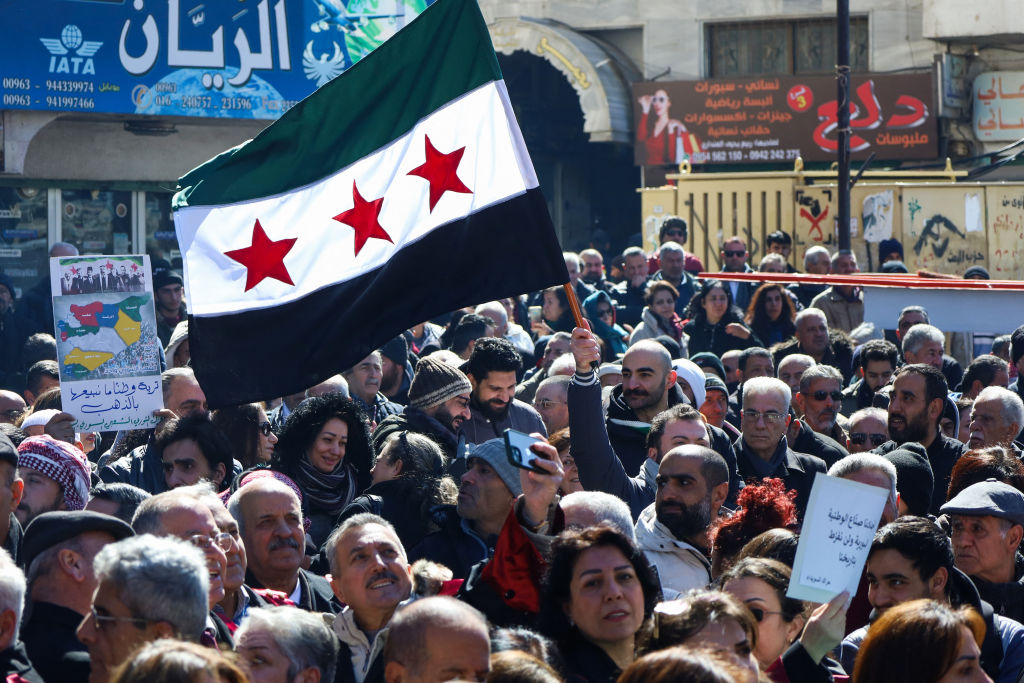
Druze Card
“Israel” is pushing for Syria’s division along sectarian and ethnic lines, particularly in the south, west, and northeast, while actively playing the Druze card. This strategy aligns with its broader goal of weakening Syria militarily and solidifying its occupation of the south to facilitate Druze secession.
The Israeli military has already begun implementing this plan by bombarding Syrian positions in the south, advancing forces near the border, and severing ties between Damascus and Druze-majority areas. Simultaneously, “Israel” is reaching out to the Druze community with offers of assistance and employment, aiming to integrate them into the Israeli economy as an alternative to Palestinian workers—similar to its tactics in the occupied Golan Heights. A population census of the Druze has also been initiated.
However, Syrian analysts argue that the Druze community is far from monolithic, with the most influential faction being aligned with Sheikh Wahid al-Bal‘ous, a revered leader assassinated by the Assad regime in 2015. This group remains loyal to President Ahmed al-Sharaa.
Recognizing Israeli attempts to exploit the Druze cause, al-Sharaa met with prominent Druze figures, including Laith al-Bal‘ous, son of the late Sheikh Wahid and leader of Men of Dignity, the most powerful anti-occupation faction in as-Suwayda. The discussions led to a unified stance against Israeli expansion, effectively blocking Netanyahu’s bid to use the Druze issue to entrench Israeli Occupation’s presence in southern Syria.
Laith al-Bal‘ous affirmed in an interview with Alhurra on February 26, 2025, that the Druze community remains committed to a unified Syria, rejects Israeli occupation, and coordinates with President Ahmed al-Sharaa.
Across Syria’s southern provinces—Quneitra, Daraa, and as-Suwayda—there is a strong consensus against any attempt to divide the country under any pretext, dealing a major blow to Israeli plans.
Despite this, Israeli Prime Minister Benjamin Netanyahu played the Druze card on February 25, 2025, declaring that “[Israel] will not tolerate any threat to the Druze community in southern Syria.” This rhetoric is part of Israeli Occupation’s broader strategy to exploit divisions.
Tel Aviv seeks to take advantage of hesitations among some armed factions in Daraa and as-Suwayda, which remain wary of integrating into the new Syrian army and reconciling with Damascus.
As-Swayda itself hosts numerous factions with differing views on the evolving political landscape—some support unity and cooperation with the central government, while others advocate for administrative federalism within the province.
In response to the situation, Netanyahu has claimed his protection of the Druze minority, with his Minister of War stating that they have a significant commitment to “our Druze friends” in Syria.
“We have a great commitment to our Druze friends in Syria. We are considering allowing those nearby to come and work in the Golan Heights on a daily basis and are preparing to provide them with assistance through organizations and various means,” Katz said.
However, voices from southern Syria, particularly in as-Suwayda, accuse the new Syrian administration of not seriously addressing Israeli provocations in the south. These critics justify carrying weapons and keeping them, though they deny cooperating with the Israeli Occupation.
According to Druze sources, it was “shameful that no unified political or religious Druze stance—whether individual or collective—was issued to criticize and condemn Netanyahu’s statements about protecting the Druze of Syria and destroying Ahmed al-Sharaa's army if they decide to enter southern Syria,” ad-Diyar reported on February 26, 2025.
The newspaper further emphasized that “Netanyahu is openly calling for the independence of Syria's Druze, advocating for the division of the country and the creation of a military council similar to the Syrian Democratic Forces, transforming the Druze into Israel’s border guards.” This would result in the establishment of a Druze canton stretching from the areas Israeli forces advanced into in Daraa, through Mount Druze and Mount Hermon, and extending to the al-Araqeeb and Hasbaya regions.
Netanyahu's proposal has been met with firm rejection by most residents of as-Suwayda, who have organized mass protests denouncing the Israeli remarks. However, there are growing concerns about potential Druze-internal conflicts.
Observers suggest that Syria's new transitional government is not seeking a conflict with “Israel” now. The new administration is struggling to govern a country that is both devastated and divided, still heavily trapped by U.S. sanctions, with weak military capabilities and an army in the process of being formed.
While some Druze believe that “Israel” is assisting them in establishing their own state, supporting minorities, and offering loyalty in return, there is growing talk among some of them about establishing the “as-Suwayda Military Council.”
In reality, Tel Aviv is setting up advanced defense lines along its borders and using these Druze groups as human shields to protect its border cities from any future attack, as confirmed by observers.
Israeli analyst Rami Simani wrote in Yedioth Ahronoth on December 29, 2024, stating that “Israel’s interest lies in dividing Syria into five cantons.”
“Israel should aim for Syria’s disappearance and replace it with five existing cantons.”
“Israel must deepen its control within Syria, particularly in the Druze canton, which seeks to join us—not through annexation, but via autonomous governance under Israel’s protection,” he added.
The Times of Israel and Israel Hayom reported on January 9, 2025, that Netanyahu's government and security officials are engaging in secret discussions about Syria’s future, including the proposal to divide the country into various administrative sections (cantons).

‘Israel's Objectives’
The Israeli Occupation has clearly stated its concern about the potential transformation of southern Syria into another “South Lebanon,” should the new administration’s forces spread across the region and arm themselves near the occupied Golan Heights.
It has become evident from Netanyahu and Katz’s statements that “Israel’s strategy” in Syria aims to prevent the new Damascus government from asserting control over the three southern Syrian provinces.
At the same time, “Israel” seeks to play the Druze card through both carrot-and-stick tactics, trying to prevent factions from merging or cooperating with Damascus.
The Israeli Occupation encourages certain spiritual forces, particularly the Druze spiritual leader in as-Suwayda, Hikmat al-Hijri, who opposes cooperation with the Damascus government or the surrender of weapons from factions in the province, which aligns with Israeli plans.
Netanyahu clarified the “message” behind airstrikes on Syria in a statement on February 26: “The message is clear: we will not allow southern Syria to become southern Lebanon.”
As part of this strategy, “Israel” works in cooperation with the Syrian Democratic Forces (SDF), which has aligned with the Israeli Occupation. The SDF held a conference in ar-Raqqah, attended by figures from as-Suwayda, promoting the idea of federalism and dividing Syria, despite widespread popular opposition.
Notably, on February 27, 2025, the Rojava Center for Studies, affiliated with the Kurdish Regional Self-Rule Administration in Syria, held a parallel conference to the National Forum organized by the new Syrian government in ar-Raqqah, amid secessionist calls.
Saudi media professor Ahmed bin Rashid bin Said states that “Israel seeks to use the Druze card under the familiar pretext of protecting minorities, leveraging the special relationship this sect holds with the Israeli Occupation power.”
“The new Syrian government’s policy of internal order, focusing on rebuilding, reassuring neighbors, and revitalizing the economy, is important and necessary. However, Netanyahu won’t wait, and postponement will not be effective,” he posted on X.
“The Israeli threat of a supposed danger to the Druze hints at what the Zionists are planning for Syria. They do not want Syria to recover and regain its strength. The use of the Druze card could potentially yield results.”
Bin Said warned that Netanyahu’s threats to the President’s administration to remove any military presence from southern Syria, disarm the army, and his promise to protect the Druze from any danger “must be taken seriously” and confronted early.
“The Zionist project thrives on violence, ignores international and humanitarian law, disregards sovereignty, and fears no sanctions, shielded by the unwavering support of Western nations.”
During the Syrian national dialogue, held at the Presidential Palace in Damascus, the participating parties called for the preservation of territorial unity and condemned the Israeli incursion. They also demanded the removal of Western sanctions imposed on Syria.
The final statement denounced Israeli Occupation’s infiltration in southern Syria, calling for the withdrawal of its forces. However, just hours later, the Israeli military launched airstrikes on several locations in al-Kiswah area south of Damascus and in the Daraa countryside.
The statement emphasized reinforcing the principle of citizenship and rejecting all forms of discrimination based on race, religion, or sect. It avoided addressing the role of religion in the state and instead highlighted equal opportunities without ethnic or sectarian quotas.
Sources
- Syria calls for Israel's withdrawal from its lands, national dialogue closing statement says
- Report: Israel mulling international summit that would divide Syria into cantons
- Israel’s military is told to prepare to defend a Druze community outside Syria’s capital
- Breaking Syria into cantons - the move that will curb Erdogan's ambitions [Hebrew]
- A strong and united Druze stance is needed to counter Netanyahu's statements. [Arabic]
- Following Netanyahu's statements on Syria: al-Sharaa meets with Druze leaders [Arabic]
- Al-Bal'ous reveals to Alhurra the latest developments in the relationship with Damascus and the position on Israel [Arabic]


